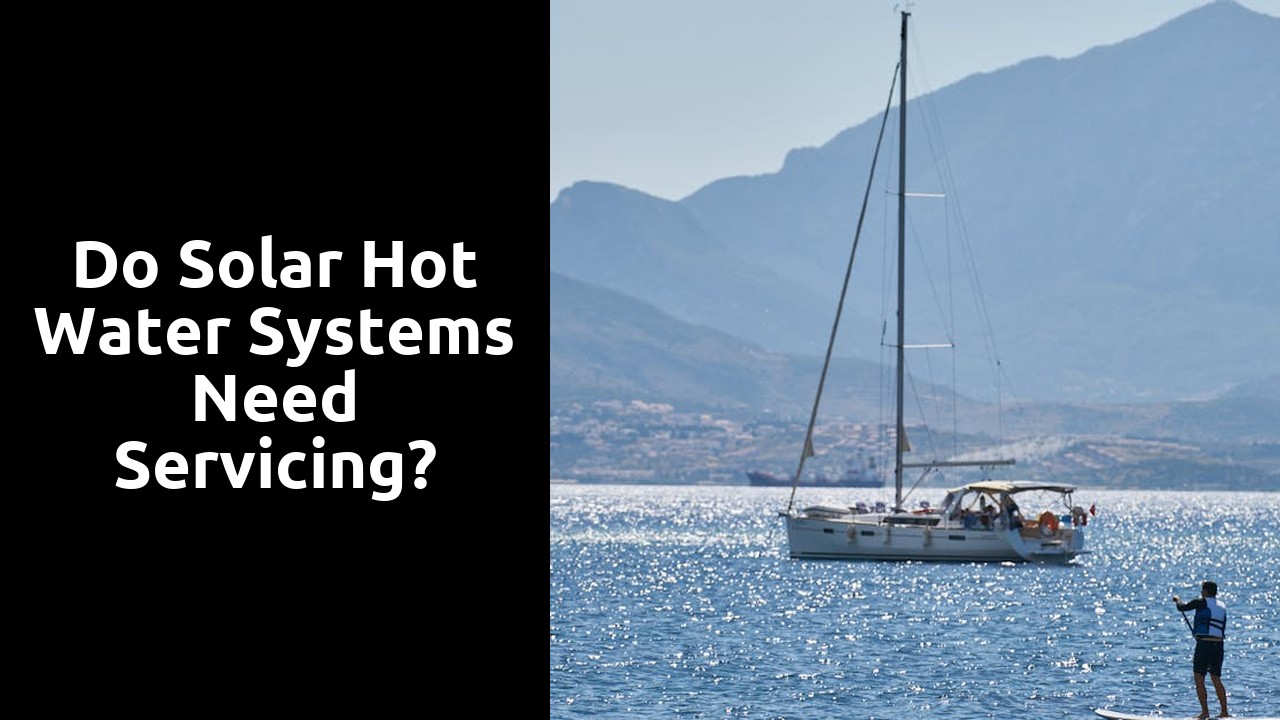
Table Of Contents
Inspecting the Storage Tank
The first step in conducting Solar Hot Water System Inspections is inspecting the storage tank. Start by checking the exterior of the tank for any signs of physical damage such as dents, rust, or leaks. Next, assess the insulation around the tank for any wear or tear that could affect its efficiency. Make sure to also examine the pressure relief valve and its surroundings to ensure they are in proper working condition without any blockages or obstructions.
After examining the external components, proceed to inspect the interior of the storage tank for any corrosion or scale buildup. This can be done by draining a small amount of water from the tank and inspecting it for any discolouration or debris. Additionally, check the inlet and outlet pipes for any signs of mineral deposits or blockages that could impede the flow of water. By thoroughly inspecting the storage tank, you can ensure that the solar hot water system is functioning optimally.
Checking for Corrosion or Scale Buildup
Corrosion and scale buildup are common issues that can affect the performance of a solar hot water system. During routine Solar Hot Water System Inspections, it is crucial to check for any signs of corrosion on the tank and pipes. Corrosion can weaken the structure of the system, leading to leaks and inefficiencies. Scale buildup, on the other hand, can restrict the flow of water through the pipes and reduce the system's overall efficiency. It is essential to inspect the system regularly to identify these issues early on.
To check for corrosion or scale buildup, visually inspect the storage tank and pipes for any signs of rust or white deposits. Pay close attention to areas where water tends to collect or flow slowly, as these are common spots for corrosion and scale to develop. Additionally, check the sacrificial anode and replace it if it shows signs of corrosion. By addressing any corrosion or scale buildup promptly, you can prolong the life of your solar hot water system and ensure it continues to operate efficiently.
Testing the Backup Heating System
When testing the backup heating system of a solar hot water system, ensure to first turn on the electric or gas heater as per the system specifications. This step is crucial in determining the functionality and reliability of the backup heating source in case of insufficient sunlight to heat the water efficiently. Check for any unusual noises or odours emanating from the heater, as these could indicate potential issues that require immediate attention during your Solar Hot Water System Inspections.
Moreover, closely monitor the backup heating system's performance by assessing how quickly it heats the water and whether it maintains the desired temperature effectively. This evaluation will give you valuable insights into the system's efficiency and ability to provide hot water consistently, especially during periods of limited sunlight exposure. Keeping a record of the backup heating system's operation and performance will help in identifying any recurring issues and enhancing the overall functionality of the solar hot water system.
Turning on the Electric or Gas Heater
When testing a solar hot water system, one crucial step is to turn on the electric or gas heater. This part of the inspection process helps evaluate the overall functionality of the backup heating system, ensuring that it can effectively provide hot water when sunlight is insufficient. By activating the electric or gas heater, you can observe if the system responds appropriately and produces hot water as needed. Solar hot water system inspections must include assessing the backup heating mechanism to guarantee optimal performance.
During the evaluation process of the solar hot water system, turning on the electric or gas heater aids in detecting any potential issues or malfunctions that may affect the system's efficiency. By monitoring the response of the backup heating system, inspectors can identify if there are any irregularities in the heating process, such as delays in heating water or inadequate temperature maintenance. Testing this component is essential to ascertain that the solar hot water system operates seamlessly, providing consistent hot water supply regardless of external conditions. Solar hot water system inspections involve meticulously examining the backup heating system to ensure its reliability in providing hot water efficiently.
Evaluating Overall System Performance
When it comes to evaluating the overall performance of a solar hot water system, there are several key aspects that need to be considered. Monitoring the system's energy consumption is essential in determining its efficiency and effectiveness. By keeping track of how much energy the system is using, you can gauge whether it is operating optimally or if there are any underlying issues that need to be addressed. Regularly monitoring energy consumption also allows you to make adjustments to improve the system's performance and reduce unnecessary energy waste.
Another crucial factor in evaluating the overall system performance of a solar hot water system is assessing the temperature consistency and water flow rate. Ensuring that the system is consistently delivering hot water at the desired temperature is vital for its functionality. Additionally, checking the water flow rate helps in determining if the system is functioning at its optimal capacity. Monitoring these aspects regularly as part of your solar hot water system inspections can help maintain the system's performance and longevity.
Monitoring Energy Consumption
Monitoring energy consumption is a crucial aspect of maintaining a solar hot water system. By regularly tracking the energy usage of the system, you can identify any potential inefficiencies or issues that may be impacting its performance. This monitoring process involves keeping a close eye on the energy output and input of the system, noting any fluctuations or abnormalities that may indicate a problem. Solar hot water system inspections should include a detailed examination of the energy consumption patterns to ensure that the system is operating at optimal levels.
Furthermore, monitoring energy consumption can also help in identifying any trends or patterns that may suggest the need for adjustments or upgrades to the system. By analysing the energy consumption data over time, you can assess the overall efficiency of the solar hot water system and determine whether any modifications are required to improve its performance. Regularly monitoring energy consumption is essential for ensuring that the system is functioning effectively and efficiently, ultimately leading to cost savings and environmental benefits.
FAQS
How often should a solar hot water system be tested?
It is recommended to test a solar hot water system at least once a year to ensure its proper functioning.
Can I test a solar hot water system on my own?
While basic inspections can be done by homeowners, it is advisable to have a professional technician perform a comprehensive test to ensure accurate results.
What are the signs that indicate a solar hot water system needs testing?
Unusual noises, inconsistent water temperatures, or a sudden increase in energy bills can be indicators that a solar hot water system requires testing.
Is it necessary to test the backup heating system of a solar hot water system?
Yes, it is important to test the backup heating system to ensure it functions properly in case of insufficient solar energy.
How can I monitor the energy consumption of a solar hot water system?
You can monitor the energy consumption by checking the system's meter regularly and comparing it to previous readings to track any unusual changes.
